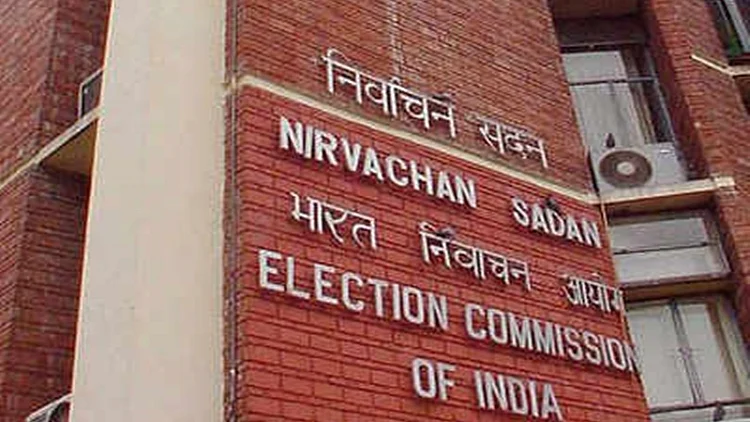Unrecognised parties receive funds via electoral bond scheme
As many as 70 registered unrecognised parties, some with “unidentified addresses”, have received funds through electoral bonds scheme since its launch in 2018, the EC has told the Supreme Court

India now has over 2,500 political parties, with a sharp increase seen in the last few years. Among these 70 registered unrecognised parties, some with “unidentified addresses”, have received funds through electoral bonds scheme since its launch in 2018, a report in The Print stated.
The 70 unrecognised parties include Sabse Badi Party, Rashtriya Peace Party, Hindustan Action Party, Nagarik Ekta Party, Bharat Ki Lok Jimmedar Party, Vikas India Party and Right to Recall Party, according to the affidavit filed by the Election Commission (EC) in the apex court this week, The Print stated.
However, the founder and president of Right To Recall Party, Rahul Chimanbhai Mehta denied having any funds from electoral bonds and said that his party is strongly against electoral bonds. His party has filed the disclosure of funds with the Election Commission, he added.
The affidavit by Election Commission filed in Supreme Court is in connection with the PIL by election watchdog Association for Democratic Reforms (ADR) that seeks to challenge the legality and constitutionality of the electoral bonds scheme.
A registered but unrecognised political party must choose its symbol from a list provided by the EC as they cannot contest elections on a fixed symbol of its own.
Electoral bonds scheme was introduced in Finance Bill 2017 by the BJP-led NDA government. An electoral bond is like a promissory note for political parties and can be issued in multiples of ₹1,000, ₹10,000, ₹1 lakh, ₹10 lakh and ₹1 crore. The bond does not bear the name of the donor.
While the government contends that the scheme will bring transparency in political funding, many authorities have raised concerns about the scheme, including the Election Commission. In a letter written by the Chief Election Commissioner Sunil Arora to the Law Minister Ravi Shankar in 2019, the EC had expressed its concerns about the electoral bond scheme.
Among the 70 registered unrecognised parties, three of them do not have identified addresses, according to the report in The Print.
Some of these parties are suspected of ‘money laundering’ operations, the report added.
Some of these parties are also probably not even eligible to receive funding through electoral bonds since the guidelines for the scheme restrict it to “registered parties [that have] secured not less than one per cent of the votes polled in the last general election to the House of the People or the Legislative Assembly.
Two of the 70 parties, the Nagarik Ekta Party and the Bharat Ki Lok Jimmedar Party, had reportedly polled much less than 1 per cent of the vote in the 2017 Uttar Pradesh assembly elections and the 2014 Lok Sabha polls, respectively, reported The Print.
In its affidavit, the EC named seven national parties including BJP and Congress and 20 state parties that received funds through electoral bond scheme but did not mention the amount received by these political parties, in accordance with an earlier Supreme Court order that instructed the parties to provide the information to the Election Commission in sealed cover.
Follow us on: Facebook, Twitter, Google News, Instagram
Join our official telegram channel (@nationalherald) and stay updated with the latest headlines
Published: 10 Feb 2020, 4:37 PM
